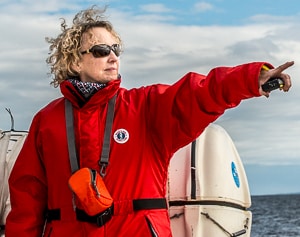
I first wrote a post called “10 Things I’ve Learned from Traveling” almost 10 years ago. Given all the things I’ve learned from traveling since then – and all the things I’ve learned from not traveling the last two years – I figured that those musings were due for an update. So, I’ve re-titled that old post (at least in my own mind) to “10 Things – Mostly Snarky – That I Used to Say I Learned from Traveling” and come up with a few new ones.
Some of the old ones have stood the time test, and bear repeating. But there are some new lessons. I’m going to try to cast things in a little more experienced light and be more serious about sharing what I’ve learned ¬– this time hoping that some of this list might actually be helpful when you travel.
So here goes.
Table of Contents
Have Patience
1. Have patience. But move quickly. To be sure, most people aren’t as experienced at travel as we are, and when we get behind one of them in any sort of line, that becomes painfully obvious. But honestly, it doesn’t go any good to display your frustration. Just count it as one of the inevitable trials of travel. That said, don’t be that person who doesn’t know how to get through security. Here are a few of my suggestions of how to move quickly. First, have all your liquids in the proper size and in a regulation clear bag and have that in an outside pocket of your carry-on. And, as you’re waiting in line, empty your pockets into your carry on before you get to the machine. I also recommend wearing a belt with a plastic buckle. Of course, you should get Global Entry, which includes TSA-Pre.
Pack Light
2. Speaking of carry-on bags, pack light. Very light. We have traveled for months at a time with just carry-on bags. (Although I do sometimes check bags when carrying specific equipment that isn’t cabin friendly such as hiking poles or a camera tripod. Can’t avoid it then.) Doing it right, and light, means having the right bags for travel as well as the right clothing. I can’t recommend merino wool clothing enough. And, trousers that are specifically designed for travel. And good socks. Things you can wear for days and then rinse in your hotel sink and hang to dry save a lot of room and weight. Kris says she’d rather wear the same two shirts and pants to death and then replace them than carry a wardrobe for daily style changes. Layers, baby, indoors or out.
Slow Down
3. When you get where you’re going, slow down and stay for a while. When you go to a city like Paris or Rome or Madrid, there are plenty of things to keep you entertained – and even enthralled – for at least a week. It’s so much better to really get the flavor of a place that you can only get from an extended stay. It’s a pain to rush through a list of must-sees and then have to pack and move every couple of days. That slow down advice is especially valuable if you’re a photographer, like I am. Sometimes it takes a long time and a lot of examination and patience to get a good photo. Make that time and the results will be worth it. Less time moving from place to place and more time to dig deeper beyond the popular (over-crowded) spots.
Talk to the Locals
4. Part of the reason you slow down and spend more time in a location is talking to the locals and learning what they like about where they live. For example, don’t ask the hotel to recommend a restaurant. Ask the clerk or concierge where they eat. Where the locals eat will usually be better and certainly be cheaper than the standard tourist spot you’ll get from a canned recommendation. And, while we’re on the subject of talking to the locals, make some effort to learn at least the rudimentary “please” and “thank you” in the local language. While it’s true that many people you encounter will speak English, it will make them more amenable to talking to you if you begin asking for help in Paris with a smiling Bonjour instead of starting right in with, “Where is the Louvre?”
Buy Travel Insurance
5. Buy travel insurance. Let me count the reasons/stories. Kris was bitten by a dog in Vietnam and required multiple doctor visits in three countries; I got so sick in India that I had to stay another day in the hotel and had to reschedule a flight; ditto in Ecuador; Kris injured herself and required stitches in Japan. You get the picture. All expenses were reimbursed, and we made it home. And, on top, there’s a certain peace of mind associated with the knowledge that if something really terrible happens, you’ll be evacuated back home.
Take Advantage of Travel Apps
6. There are lots of travel apps for your smart phone you’ll be glad you have. From the airline apps, to the hotel apps, to the maps, to the TravelSmart app, to Tripit (which keeps track of all your arrangements in one spot). There are lots of good ones apps always use for travel.
Book Direct
7. While we’re on the topic of apps, use the ones that let you book direct with airlines and hotels. Then, if there’s any trouble with your reservation, you are at least dealing direct with your vendor instead of a third party. Also, if your home city is a hub for one or more of the major airlines, pick one and stick with them. If you travel as much as we do (did) you’ll accumulate loyalty bonuses like free flights and upgrades. Also, use credit cards that amplify those bonuses or have generous point programs of their own. We use the Delta Amex Platinum card for air travel which gives us mileage bonuses as well as a companion ticket every year, that offsets the annual fee. For most everything else, we use the
Chase Sapphire Preferred® Card, which gives you a 25 percent point bonus when you book travel with their points. (There's also a 60,000 point welcome offer at sign up.)
Hire Local Guides
8. Often, it’s worth it to hire a guide. In many countries, tour guiding is an actual profession that requires a college degree. Also, when you use a service like Context Travel, you’ll usually get someone with a doctorate in Art History to show you around Venice, or a military historian to show you around a significant battlefield. It’s always more enjoyable to know what you’re looking at and its place in history. And, even better, guided tours often get to skip the entry lines, which when you’re in Rome can be very long. (and guides are another way to spend time with locals and support local economy. Even though we are decidedly ‘independent’ travelers, we know there’s so much we don’t know.
Read a Book
9. Before you go, do some research. Read a good book about where you’re going. And by a good travel book, I mean a novel or a travelogue, not just a guidebook. Also, the better travel blogs, i.e., the ones that tell personal stories and are not just lists, are a worthwhile resource. How fun is it to eat in the same restaurant as A Gentleman in Moscow, or drink in the same bar as Hemingway in Paris, or learn to make flan like James Michener did as he was writing Iberia, or see Barcelona through the eyes of Robert Hughes?
Learn How to Use Your Camera
10. Finally, take photos that capture the essence of where you are and what you see. That’s not a picture of you standing in front of a painting or a cathedral or a mountain. It should be a picture of what struck you about the place: the light, the people, the atmosphere, the color. Something that makes it memorable to you and will recall those memories when you look at the photo. Nobody, including you, wants to see pictures of you (well, maybe one or two are okay) but everyone loves a great landscape. Did Ansel Adams or Henri Cartier-Bresson ever take a selfie? No. And, one more thing, get off automatic mode and learn to use your camera. Whether it’s your cellphone or an expensive full-size rig, it takes a bit of effort to learn how to capture what you’re seeing. You won’t be sorry if you make that effort.
P.S. I've also written down a few thoughts about traveling when you're our age. And, I wrote a piece a couple years back for our friend at The Insatiable Traveler on traveling as a couple.
Up Your Travel Skills
Looking to book your next trip? Use these resources that are tried and tested by us. First, to get our best travel tips, sign up for our email newsletter. Then, be sure to start your reading with our Resources Page where we highlight all the great travel companies and products that we trust. Travel Accessories: Check out our list of all the accessories we carry to make getting there and being there a lot easier. Credit Cards: See our detailed post on how to choose the right travel rewards credit card for you. Flights: Start finding the very best flight deals by subscribing to Thrifty Traveler. Book your Hotel: Find the best prices on hotels with Booking.com. See all of the gear and books we like in one place on our Amazon shop.Got a comment on this post? Join the conversation on Facebook, Instagram, or Threads and share your thoughts!




Comments are closed.